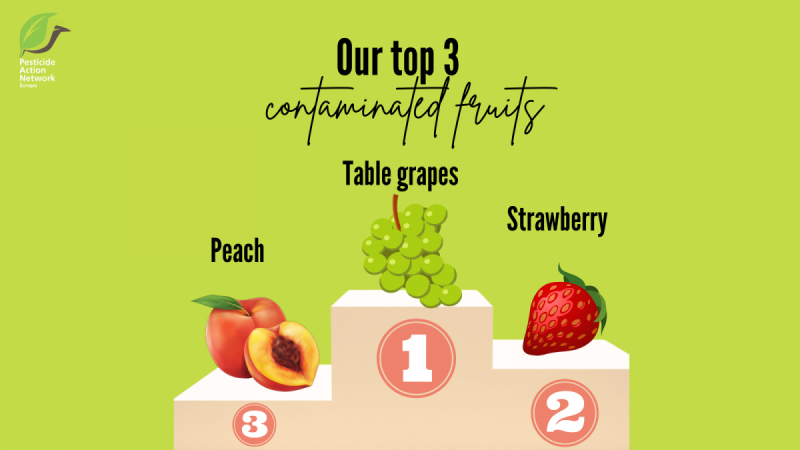One of the best parts of summer is definitely the fruit. During the warm days, we enjoy grapes, strawberries, cherries, apricot, and peaches. But, did you ever wonder about the level of pesticide contamination?
We analysed the official 2021 monitoring data. They were collected by the European Food Safety Authority (EFSA) across EU Member States. We found shocking results about pesticide residue in our summer fruits.
Putting them on the top 3 losers, in the third position, we have peaches, 79% of which had pesticide residues. This is followed by strawberries in second position also with 79%. In the very first position, 85% of table grapes were found with pesticide residues.
Up to 26 pesticides were found in a single sample of table grapes, up to 19 in strawberries and up to 11 in peaches. That's a lot of pesticides in a single bite of fruit!
Other summer fruits, like apricots and cherries were also high in the rank, as 75% and 73% of samples, respectively, contained pesticide residues.
On a greater scale, the level of pesticides in all fruit samples tested was alarming: 71% of the sampled fruit contained at least one pesticide and 56% two or more. The maximum number of pesticides found in a single fruit sample was in table grapes with 26!
Now you may ask what we can do about it. The first step is to buy organic summer fruit or non treated fruit from local gardens. Second best is to buy local and ask the producers which products they use.
Always wash your fruit thoroughly. Peel non-organic fruit, to remove pesticides from their surface. For children and pregnant women, it’s best to eat organic fruit. Quite a few pesticides are endocrine (hormone) disruptors, not suitable especially for small children.
We wish you a pesticide-free summer!
Read our PAN Europe Consumer Guide 2021 & The 2021 European Union report on pesticide residues in food
